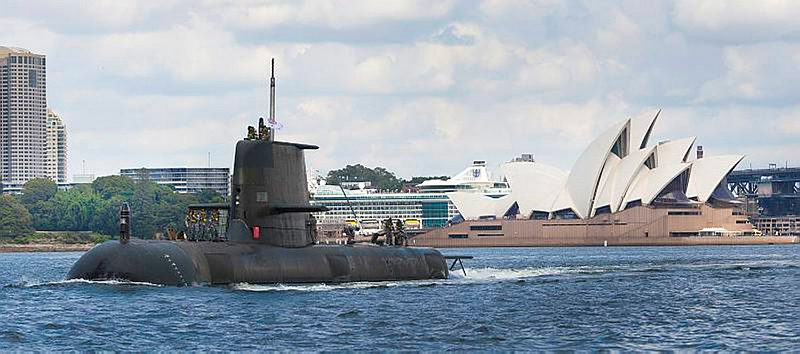 Andrew Davies makes some points about maritime operations which need teasing out.
Andrew Davies makes some points about maritime operations which need teasing out.
The first is in relation to maritime trade and the ability to protect it. It seems to me that in making the declaration that
such protection is getting more difficult because of the reducing numbers of warships and the increasing numbers of merchant ships, there is an inherent assumption that such protection has to be achieved by mechanisms such as convoy. In other words, there has been a default to what is a particular operational/tactical method rather than an attempt to consider the issue as a whole. I find it interesting how often this happens when naval/maritime questions are raised in public, perhaps much more often than is the case on land or in the air.
There can be no doubt that the protection of shipping is a complex and constantly evolving problem. But that complexity needs to be borne in mind, because it works both for and against would-be protectors. There are many techniques for the protection and control of shipping, some time-honoured and some very new. Close protection of merchant ships by warships is a tool that may well be employed in particular circumstances, but it would be wholly impractical in others. Arguably, there have been a whole host of developments, such as the much improved
maritime domain awareness systems now multiplying around the world, as well as remote and very long range sensors (such as passive and low frequency sonars) which provide much greater support to what needs to be at least a theatre (and potentially global) effort, and about which all too little has been said in public. What is also clear about the protection of maritime trade as a whole, as opposed to securing specific vital supplies to particular destinations, is that it would need to be on a coalition basis. As, arguably, it always has been.
Andrew also speaks of ‘sea control’ and ‘sea denial’ as being ‘means’ (although I really think he meant ‘ways’), but, to a degree they must also be considered as ‘ends’—or at least as ‘ends’ which, once brought about, allow other things to happen (or not happen). To be fair, I’m not sure that maritime strategic theorists have ever been completely clear about what they mean by ‘control’ and ‘denial’ and I think that this has contributed to a certain amount of muddled thinking in the strategic community as a whole.
I want here to make an important distinction as a result of my own evolving thought. Rather than regarding ‘denial’ as a subset of ‘control’ in certain circumstances—that is, you can conduct denial operations in order to create the conditions in which you can achieve control—I want in future to treat them as separate things. My idea of sea control is that its achievement means that you can use the sea as a means of transportation, either for the movement of supplies or trade, or for the projection of power to the extent necessary. My idea of sea denial is that it prevents the enemy from moving their supplies or trade, or projecting power. I’ll make a critical associated point—‘projection of power’ here relates to the use of seaborne means to project power
onto the land and not to the ability to prevent someone else’s achievement of sea control.
This recognises, for example, that it is possible to achieve a situation of mutual sea denial.
What I think this approach does is separate the
ways and means from the
ends because the same ways and means may be employed to achieve what are completely different ends. For example, a submarine might well be contributing to sea control elsewhere if it intercepts a hostile submarine departing from its home port if the latter unit has been tasked against our own shipping (at least
22 German U-Boats (admittedly out of a total of more than 700) and many more Italian and Japanese submarines were sunk by Allied submarines in 1939–45). From the same position and using the same tactics, it might also contribute to sea denial by sinking an enemy transport (or, indeed, a submarine capable of land attack).
Finally, let me reiterate a point about the cost of renewing the submarine force that I’ve made elsewhere. It’ll be some time before a decision needs to be made on spending the extra money needed for the
additional boats proposed in the 2009 White Paper—sufficient time that it is beside the point—or any point related to the current debate on Defence spending and on replacing the
Collins. If we want a submarine force at all in the future—no matter how many boats—money needs to be found rather soon.
Rear Admiral (ret’d) James Goldrick is a fellow of the RAN’s Sea Power Centre and a visiting fellow at the Lowy Institute. Image courtesy of Department of Defence. Print This Post
Print This Post Andrew Davies makes some points about maritime operations which need teasing out.
Andrew Davies makes some points about maritime operations which need teasing out.